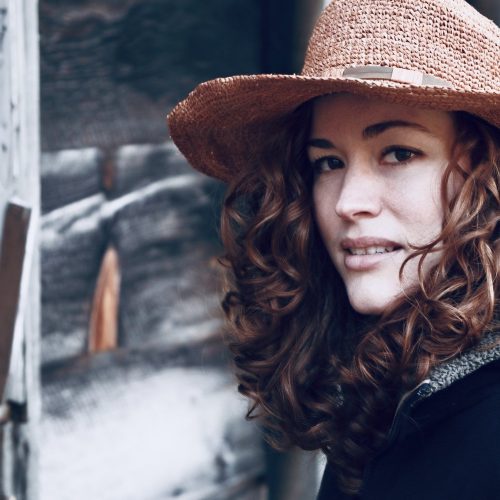L.A. based singer-songwriter Megan Brickwood’s song “You’ll Never Know”, from her 2020 EP Where the Wind Lays Heavy, is sultry, moonlit folk that recounts the lament of love lost. The song opens with wistful guitar strums, eventually accompanied by subtle, rattling percussion. Brickwood’s resonant, effortless vocals then begin to tell the story of the battle between her and heartbreak:
I get lonely in the dead of night
When the moon is bright
And the wind howls for you
Right from the start, we see allusions to nature. Brickwood effectively ties her emotional experiences to the elements, and natural phenomena.
I hear you singing in the willow tree
So sweet and soft
It brings me to my knees
These lyrics reveal the depth of her loneliness — she is so longing to hear from her lost one that she hears them in the everyday sounds of her setting, and once she does, she can’t even remain standing.
Brickwood fully admits her melancholy when she sings:
I’ve been creeping in the riverbed
Laying down my sorrow
On that icy winter’s edge
The reference to the cold evokes the feeling of isolation that the dead of winter can instill in people, and serves to emphasize her own isolation from this person. Her voice lingers on the “edge”, as if to predict the change of the music for the chorus.
The world keeps on turning
And I’m climbing up that hill
A long night’s journey
And a hard dream to kill
As though determination has stirred something within her, Brickwood’s voice shifts a little deeper when singing the chorus. As the guitar and drums build in momentum, so too does Brickwood’s need to remove herself from this sorrow, and reach the top of this metaphorical hill. Because, as she points out, whether or not she can pull herself out of the sadness, the world will continue to move on around her.
In the next verse, we learn a bit more about her relationship to this person she misses so dearly.
We made our home
Under a moonlit sky
Where the river runs
But now its running dry
Brickwood describes a time when she and her love were together, when the home they made together was fruitful and happy (i.e. when the river flowed). But, without them, this place is becoming barren in the shadow of what it once was (the river, perhaps the river of love, is no longer flowing).
The song’s second chorus plays, as we contemplate this new information, and the difficulty she is having dealing with this loss on her own. Brickwood poignantly ends this second chorus the same way she ends the song (after a short, thoughtful, and melodic guitar solo):
Oh I still love you and you’ll never know







